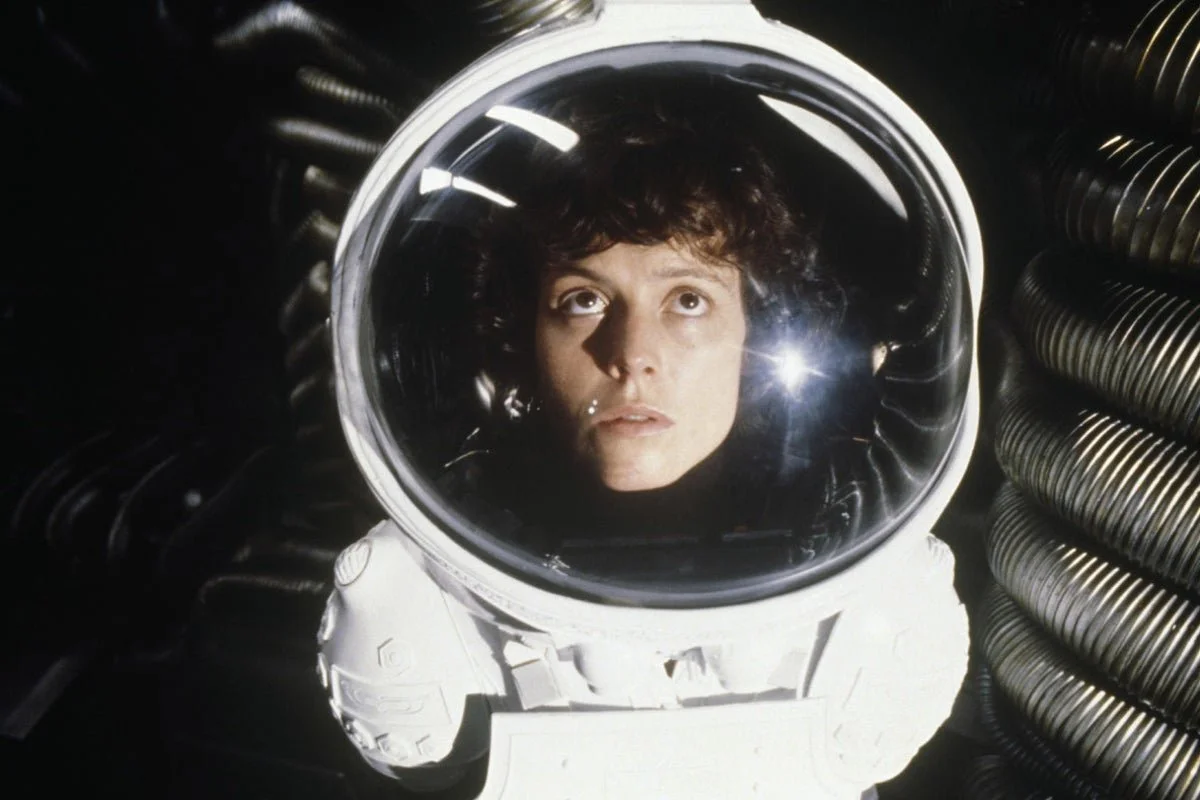Recommendation: Alien, The Ultimate Western
For years, my mom has told me about how watching Alien in theaters haunted her long after the movie ended. She cautioned me to wait until I felt completely ready to watch the film for fear that the xenomorph might also haunt me. Though it’s 40 years past its release date, the film remains at the top of many best horror movie lists. I couldn’t help but wonder, what lets Ridley Scott’s Alien stand the test of time? In my mind, there’s one main reason: Alien is a western.
When most people think about westerns, they tend to picture cowboys riding horses through the desert to save their town. Stagecoach and Butch Cassidy and the Sundance Kid immediately come to mind. Given its astronomical setting, Alien is clearly not a typical western. However, Scott’s iconic film possesses some of the genre’s core tropes that keep viewers coming back for more.
Alien doesn’t unfold too quickly. The actual monster doesn’t make an appearance until an hour into the film and is only on screen for a total of three and a half minutes. Most of the movie is spent building up to the alien’s introduction, thus giving the audience time to familiarize themselves with the Nostromo ship and its crew so each death is more meaningful and personal. This theme of the reclusive monster is present in several successful thrillers such as Jaws (1975) and Cloverfield (2008). Scott’s concentrated pacing builds enough anticipation that the audience doesn’t need to see the monster to be scared. Hearing about alien transmissions and seeing the xenomorph as a baby provides just enough content for viewers to be on the edges of their seats.
Alien is almost entirely set on a spaceship where hallways are short and tight, making it impossible to track the monster as we watch the crew move through the ship. Use of a single setting is another common trait for a western. The desert, where most westerns are filmed, is a lawless region. It is an area void of rules that not only allows for intense fight scenes but also a complex relationship between ‘good’ and ‘bad’ where the protagonists endure hardship on the frontier. The Nostromo is in outer space throughout the film, the ultimate lawless region. Anything goes in space and the mystery surrounding the great unknown only adds to the enticing possibilities of how aliens will manage their way onboard. Crew members are completely isolated, clearly demonstrated by the opening wide shot of the lonely ship in space. The characters’ inability to escape makes the film much scarier and builds tension in scenes where the alien stalks its prey.
Most westerns move slowly so the audience has time to connect with the characters and get a clear sense of who to root for. This is because the western genre heavily relies on the archetype of good triumphing over evil with a main character saving the day. Alien makes use of this storyline as well, with Sigourney Weaver’s Ellen Ripley leading the charge of saving her crew. The pacing familiarizes the audience with Ripley and her relatable traits. She isn’t the typical hero of a movie cast in space where highly educated astronauts search for a way to leave or return to Earth. Instead, her crew is simply moving cargo, making them appear more ‘normal’ to the audience.
Over the course of the film, we watch Ripley grow into a tough and independent woman who is entirely capable of facing the alien herself. Weaver’s strong female protagonist keeps the film contemporary and modern, despite its age.
Similar to westerns, Alien provides the audience with an independent hero who is being oppressed by ‘evil’ and must risk their life to defeat it. Due to the lawless nature of both outer space and the desert, protagonists are required to rely on their moral compass to inform their decisions. The audience watches them grapple with major choices, forms their own opinions, and sympathizes with the difficult role they’ve been handed. Ripley detests calls from Earth ordering her to prioritize bringing the alien back to be studied or used as a weapon. Instead, her moral code preserves her burning desire for vengeance, keeping her focused on how to kill it throughout the film.
Alien has stayed relevant for decades because it plays on classic filmmaking techniques, especially those popularized by the western, and twists them into a tension-filled horror sci-fi film. Surprisingly, the film was never meant to have any political or feminist connotation – the character of Ellen Ripley was famously meant to be a man for the majority of pre-production with Scott only casting Sigourney Weaver a few weeks before shooting. Her character was written as a man, something that allows her to easily gain respect as a female lead. Her authentic portrayal of Ripley without any romance plot lines or similarly traditional ways to distract from female protagonists creates an iconic character who makes it clear that the infusion of multiple genres can make a new and improved product.




